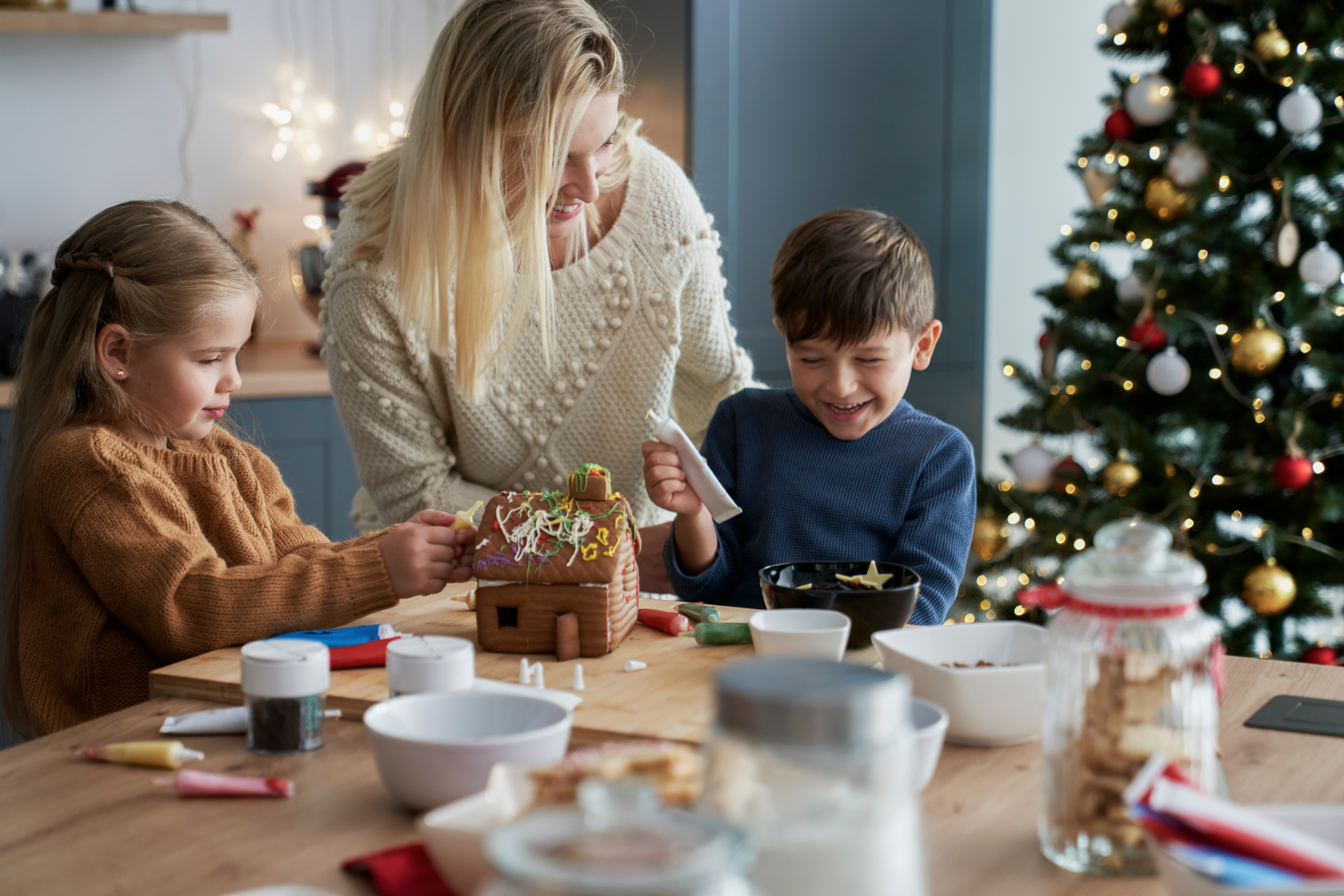We want all families to enjoy the festive season and create magical memories they treasure, but we can’t ignore that the past few years have been difficult for everyone. Many families have suffered loss and we particularly want to provide support to those of you who have experienced the death of a loved one. We have asked experts from our Children’s Trauma Therapy service to give us their thoughts on how to ensure you support yourself and your children this Christmas.
Don’t ignore your feelings
It can be tempting to “soldier on” and pretend you’re not upset about an absent family member or a difficult situation, but this can lead to you feeling overwhelmed and emotional all at once. It can help to plan in time to visit a loved one’s resting place, schedule some quiet time for yourself in a peaceful environment or share your feelings with someone you trust.
Plan in advance
Some people might worry about the questions they’ll be asked about family members, or what they’re doing over the Christmas season, and that this will “open the floodgate” for difficult emotions. It can help to plan your responses to these questions in advance. You don’t have to tell anyone anything you’re not comfortable telling them, though… It’s your business!
Don’t feel under pressure to celebrate
While Christmas is great for sharing experiences with others and bringing people closer. these same strengths festivities can feel overwhelming if you’re not in the right mood or place to celebrate. Just know that it’s completely fine to avoid socialising if you don’t want to, and it’s also completely acceptable to not be happy. Anyone who knows you will understand.
Engage with it… on your terms
Many people will find Christmas reassuring, but maybe want to approach things differently – for example, you might want to go for a walk when your parents might have visited or downplay Christmas dinner for a son or daughter struggling with complex feelings. Be flexible and explore different options. It might be a nice chance to make a change, or you might create new treasured family rituals.
Look after yourself
It can be hard to engage with anything when we’re grieving, so just ensure you don’t take too much on. Keep it simple, seek support where you can and don’t be tempted to do too much. It can help to think of what you’d tell your friends to do if they were in the same boat as sometimes we can be better at looking after others than ourselves, and this helps us put our own situation in perspective.
Identify your key support
It helps to know who you can turn to if you need to share difficult feelings, make plans, hand over the care of children and explain your decisions about how you’re handling the season. This might be your partner, a close friend or even a co-worker.
If you can, try to make a specific plan for who can look after your children at short notice on Christmas Day and the surrounding days if you suddenly find yourself more overwhelmed than you expected.
There’s a reason we have the saying “a problem shared is a problem halved” and by raising your fears in advance you can loosen some of their hold on you. This is important throughout the season, but particularly for Christmas day itself when emotions can be very near the surface. Remember that if you don’t have anyone to talk to you can always speak to professionals or services confidentially.
At the worst, it’s just one day
Sometimes it can help to break down our fears into manageable chunks, and some people find it reassuring to recognise that Christmas is mostly centred around Christmas day itself, so if you’re not looking forward to it remember that it can only last a day at most.
Find out more about our Make Theirs Magic Christmas campaign and how you can get involved.







